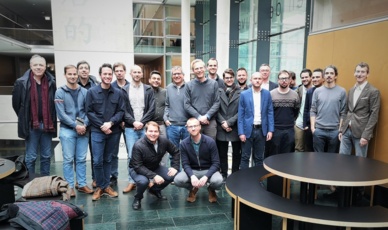Workshop in Empirical Macroeconomics
Inflation, unemployment, and monetary policy
How do prices adjust in the economy, and what role does information about current price developments play? Theoretical models were presented to investigate these questions and explain current price developments. In particular, the role of uncertainty and its influence on the emergence of inflation was highlighted.
Identification of macroeconomic shocks
Macroeconomic developments are subject to a range of influencing factors, making it difficult to isolate the individual causes of economic fluctuations. New approaches to isolating monetary and fiscal policy shocks, as well as disruptions in global supply chains, were presented.
Global financial markets
Global financial markets play a central role in the transmission of international shocks. The presented contributions discussed the role of the US dollar in global financial transactions and in the transmission of financial market risks, as well as spillover effects of US monetary policy.
Macroeconomic risks, uncertainty, and financial market stability
Macroeconomic risks and uncertainty are essential elements of current economic developments. To investigate these phenomena, developments in the context of Brexit were examined, which led to increased macroeconomic and economic policy uncertainty. In addition, financial crises and the role of financial market stress as a trigger were discussed.
Unconventional monetary policy
Modern monetary policy employs a variety of instruments in addition to conventional monetary policy, such as the control of short-term interest rates, particularly in a low-interest-rate environment. Unconventional monetary policy has a different effect than conventional policy in some cases, which was discussed in a number of contributions from different perspectives.
In total, 25 researchers from academic institutions, central banks, and supervisory authorities from across Europe participated. The workshop provided an excellent opportunity for participants to exchange ideas and discuss current macroeconomic challenges. The presentations and discussions were of high quality and offered valuable insights into the latest methodological advances. Overall, the workshop was a great success and provided a range of ideas for current and future research projects.
The program can be downloaded here.











